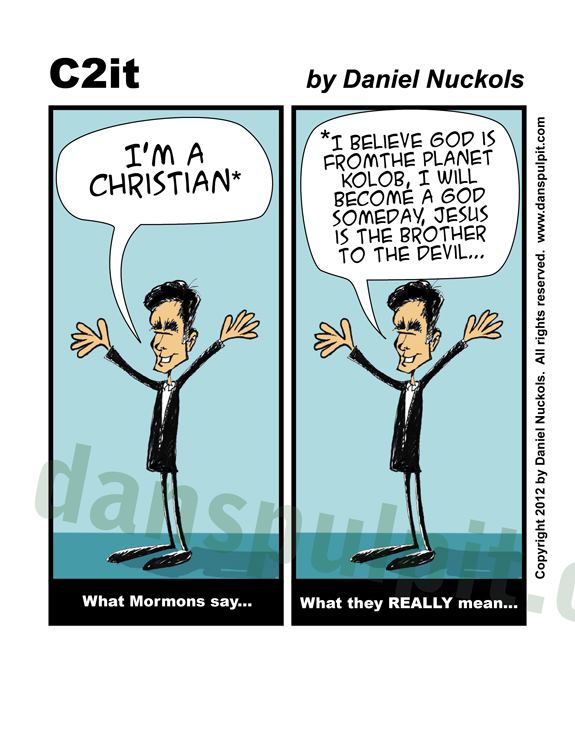Monday, July 30, 2012
Saturday, July 28, 2012
Look at hate fill speech, but since it is not dealing against gay marriage, apparently is ok
ABC’s The View honored Roseanne Barr with a guest-host spot on July 19, which shows they probably aren’t in the habit of evaluating her sanity based on her Twitter rants. Take her wishing cancer on Chick-Fil-A fans this morning: “anyone who eats S–t Fil-A deserves to get the cancer that is sure to come from eating antibiotic filled tortured chickens 4Christ”.
But as she is apparently defending gay marriage, it is ok to wish your enemies death.
The hypocrisy of these people is overwhelming. And then they say we, the ones who believe in the proper understanding of marriage are hate filled!!!
Friday, July 27, 2012
Finally taking a stand against the intolerant minority that wants us all to conform to their ways
This is a great opportunity to affirm the biblical view of marriage. What gives others the right to have a "pride day", and yet, we don't call them "heterophobes" (But I do indeed some are)?
I don't live in the USA anymore, well, for more than 20 yrs now. But if you live over there, I encourage you to support for the right to think differently, and to hold on to values different than those of the intolerant minority.
It's a great American story [i.e., the founding and operation of the company] that is being smeared by vicious hate speech and intolerant bigotry from the left.The Chick Fil-A company refuses to open on Sundays so that their employees can go to church if they wish. Despite the pressure from malls, airports, and the business world to open on Sundays, they still don't. They treat customers and employees with respect and dignity.
I ask you to join me in speaking out on Wednesday, August 1 "Chick Fil-A Appreciation Day.” No one is being asked to make signs, speeches, or openly demonstrate. The goal is simple: Let's affirm a business that operates on Christian principles and whose executives are willing to take a stand for the Godly values we espouse by simply showing up and eating at Chick Fil-A on Wednesday, August 1. Too often, those on the left make corporate statements to show support for same sex marriage, abortion, or profanity, but if Christians affirm traditional values, we're considered homophobic, fundamentalists, hate-mongers, and intolerant. This effort is not being launched by the Chick Fil-A company and no one from the company or family is involved in proposing or promoting it.
I don't live in the USA anymore, well, for more than 20 yrs now. But if you live over there, I encourage you to support for the right to think differently, and to hold on to values different than those of the intolerant minority.
The godless government of Israel
The Civil Administration is calling for the demolition of a Palestinian village in the southern West Bank, partly because it is built on an archaeological site. The call for demolition comes despite the fact that Israeli authorities have approved the construction of Jewish settlements on much more important archaeological sites, such as the settlement at Tel Rumeida in Hebron and the Jewish Quarter in Jerusalem.
So there you go, it's a just a plain land grab.
In the past year, the High Court of Justice has been asked to rule on the state's intentions to demolish at least 12 villages south of Hebron (Susia, Dekaika, Bir al-Id, Saala and eight villages that have been declared part of army firing zone No. 918) located in Area C, which is under Israeli control, and force their residents to move to Areas A and B, which are under Palestinian civil control. Next week it will also rule on the fate of Zanuta, a village that lies on the border of the West Bank.
Yes, kick them out to Palestinian area, where they will be better. As if the land they are being evicted wasn't their land in the first place.
Residents of Zanuta, who filed a joint petition to the High Court of Justice with the Association for Civil Rights in Israel are requesting that the Civil Administration complete a detailed construction plan for them. If the planning of their village were regularized, the demolition orders issued by the Civil Administration against their improvised structures would be reversed, and construction would be permitted in accordance with the natural growth of the population and their needs. The Civil Administration is refusing to comply with the request, and is instead demanding that the residents move to the town of Dahariya.
To my Zionist friends, they see that Israel is free to do whatever it wants to any human beings, in order to recover "their land".
The nickname for Netenyahu, the Primer Minister, is "bibi". I think the proper name would be "Ba'al Zebub"
Thursday, July 26, 2012
Seven Reasons to Study Church History
Via davidnormanblog.
- It will cure our ignorance of the past.
- It will curb our arrogance of the present.
- It will conserve the faith for the future.
- It will connect us to a rich legacy.
- It will counter the claims of critics.
- It will cultivate Christian growth.
- It will clarify our interpretation of Scripture.
Wednesday, July 25, 2012
How to Interpret the Bible Like a Liberal in 8 Easy Steps
By David Norman
Step 1. Redefine a theological term in a way that no Biblical author would recognize.
Step 2. Force that theological redefinition on verses that are not primarily addressing a debated issue.
Step 3. Be sure your interpretation aligns with current cultural standards because they aren’t “archaic” and treat everyone “fairly.”
Step 4. Claim Biblical insight into the debated issue based upon that interpretation and read that new insight into verses that actually address the debated issue.
Step 5. Make an emotionally charged accusation against those who interpret the text in a manner consistent with 2 millennia of church history.
Step 6. Enjoy fellowship with others who share your hermeneutical methodology and break from any traditional reading of the Scriptures.
Step 7. Make Scripture mean whatever you want it to despite authorial intent or other trivial matters such as Biblical fidelity.
Step 8. Declare Scripture to be unclear or inconsistent due to the various interpretation and meanings all traced back to poor hermeneutics.
Labels:
biblical,
David,
hermeneutical,
Jesus,
Jovel,
Liberal,
Luis,
methodology,
norman,
Scripture,
theological
Monday, July 23, 2012
Sacrificing the past in order for a better future
Sermon took shorter this week, because I read the entire chapter of 1 Samuel 15. I encourage you to do the same.
You can download the podcast here Subscribe via RSS.
I Samuel 15
Background:
Saul,
did not want to be king, he didn’t
believe Samuel 9:21,but hid when called upon to be king, 10:22. But after the
years, he had come to think so greatly about himself, that he had a monument
made after him, I Sam. 15:11-12
Amalekites,
they were doomed for destruction, Ex. 1714-16; Nu.24:20; Dt.25:17-19;. The Lord
was paying back to them for what they did in the past.
Problems:
1.
Not keeping the Word of the Lord is not an
unimportant issue. Saul, and us, must follow what the Lord says. Not doing it,
may bring unwanted consequences to our lives, and our loved one. Eg. Saul and
his sons died.
2.
We must destroy all past issues that still
bother our lives. God gives us the strength and accomplish this. We must
utterly destroy all past issues that may damage our present.
3.
No service, or “sacrifice” will ever replaced
being obedient to the Lord. Obedience is greater than anything else we may do.
Conclusion
Are we
being obedient to the Lord? Are we willing to follow the Lord’s Word, even when
others suggests to us not to, because it may not be profitable? Does obedience
also show love for God?
You can download the podcast here Subscribe via RSS.
Friday, July 20, 2012
Let's laugh and learn with our Lutheran friends
I am not a Lutheran, or wish to be one. But I appreciate how some make the christian faith available, and well, this is one of those I watch to learn, and laugh.
Tuesday, July 17, 2012
Placing PDF books on your iphone, ipod touch, or ipad
I've been trying to learn how to carry my PDF books on my iphone and ipad.
There's a link that you just have to follow the steps, and you will have them on your IOS device.
Cheers.
Saturday, July 14, 2012
What Did Paul Really Mean? | Christianity Today
For those interested in the New Perspective on Paul.
What Did Paul Really Mean? | Christianity Today
What Did Paul Really Mean? | Christianity Today
Labels:
Christianity,
Gathercole,
Jovel,
Luis,
new,
Paul,
perspective,
Simon,
Today
How Wrong was Zwingli on the Anabaptist
They are mostly a class of rabble, homeless from the want of means, who make it their business to win old women by pompous discourses upon divine things to extract from them the wherewithal to support themselves, or to gather in considerable alms. — Huldrych Zwingli.
It was so easy for Zwingli to talk bad about his past associates. Magisterial Reformers always putting down those who did not get any support from the authorities.
Has anything changed???
Wednesday, July 11, 2012
PCUSA says spanking is wrong
The 220th General Assembly of the Presbyterian Church (USA) narrowly passed a resolution Thursday against using corporal punishment on children, the Christian Post reports. The resolution, which passed 334 to 306 with nine voters abstaining, also states that the PCUSA will now encourage "all states to enact licensing laws prohibiting corporal punishment in schools and day and residential childcare facilities." Many Christians believe corporal punishment is a biblical practice -- Proverbs 13:24 says, "Whoever spares the rod hates their children, but the one who loves their children is careful to discipline them" -- while others believe children can be effectively disciplined in a non-physical way, and the resolution was controversial among General Assembly members. "Most people know the difference between discipline and abuse," the Rev. James Emig of the Denver Presbytery said. "I would like us to trust parents that most of them can responsibly [use] corporal punishment." Commissioner Susan Maara of the New Hope Presbytery argued: "If we can't stand against hitting and abusing children, what can we stand for? Let us love and not hit them."Well, once again, they have shown that they don't care what Scripture says.
They are being led by the spirit of the age.
Who would think that being a pastor would be bad for your health? Well, our saviour died!!
In my 14 yrs of ministry, I've had very bad moments when people really made my gut turn inside out. But now there's a study that shows how being a pastor affects the health of those of who su engage in ministry:
I belong to the Baptist Union of Victoria, in Victoria, Australia. They put a great emphasis on taking care of one's health. But this is not sometimes enough by the looks of it.
Yes, only one direction most of the time. If we want a bit of attention ourselves, we are usually put down right away as selfish, and not caring.
Read the whole entry. This is not a light issue, since it has to do with the ones called to serve the church. Hopefully, churches will take this study to heart, and be more supportive of their pastors.
(RNS) Most members of the clergy are taught to put the physical and spiritual needs of others first, but that self-denial may be harmful to their own health, according to a new Duke University study.
Studies of United Methodist pastors in North Carolina found high rates of chronic disease and depression, and researchers worry it can be difficult to convince clergy to seek help.
To address these unique problems, Duke Divinity School's Clergy Health Initiative developed a program to provide preventative care in a spiritual context.
I belong to the Baptist Union of Victoria, in Victoria, Australia. They put a great emphasis on taking care of one's health. But this is not sometimes enough by the looks of it.
"Clergy recognize the importance of caring for themselves, but doing so takes a back seat to fulfilling their vocational responsibilities, which are tantamount to caring for an entire community," said Rae Jean Proeschold-Bell, the initiative's research director and assistant research professor at the Duke Global Health Institute.Now I know why I am getting a belly!!!
The institute's research found the 40 percent obesity rate among North Carolina United Methodist clergy eclipsed the state average of 29 percent. Pastors also suffered high rates of chronic diseases such as diabetes, asthma, arthritis and hypertension. More than 10 percent showed symptoms of depression, about double the national rate.
Despite these health issues, clergy were also more likely to say their health did not negatively affect their work.
Proeschold-Bell said stress, which is tied to overeating and weight gain, comes in many forms for clergy.
Pastor's schedules are unpredictable and filled with diverse activities, resulting in what Proeschold-Bell called "role overload." She also points to an internal pressure to live faithfully and support the community.
"Pastors have lots of social ties, but the support goes only in one direction," she said.
Yes, only one direction most of the time. If we want a bit of attention ourselves, we are usually put down right away as selfish, and not caring.
Read the whole entry. This is not a light issue, since it has to do with the ones called to serve the church. Hopefully, churches will take this study to heart, and be more supportive of their pastors.
Calvin on bold preaching
Some people have taken "offense" that when I preach, I look like I am sure of what I am preaching, as if this is a bad quality. Well, I leave you with the words of John Calvin on the subject:
[H]e [the preacher] should not speak uncertainly as if he were giving out comments of his own, but he should be able to speak out confidently without hesitation in the name of God; just as Jeremiah in this passage [Jer 1] demands to be heard because, as he declares, God has put his words in his mouth.
We can be sure that whatever comes from man’s own cleverness may be ignored. God demands for himself alone the honor of being heard in his church (as I said yesterday). Hence it follows that none should be recognized as servants of God, none should be counted just and faithful prophets or teachers, unless God is speaking through them, unless they invent nothing by themselves and teach nothing by their own will, but preach only what God commands. -- John Calvin
Tuesday, July 10, 2012
Monday, July 9, 2012
Sermons should be sermons, not speeches
By Susie Guenther Loewen
Sermons are usually the part of worship I most look forward to. They’re the heart and intellectual meat of the service. But precisely because I have such high hopes for the sermon there’s been more than one occasion when I’ve been deeply disappointed — because the sermon wasn’t really a sermon. It was actually just a speech, and there is a difference. Here are a few general examples:
— The Museum Visit (or, the Archeological Dig): These types of preachers have usually taken one or more biblical studies courses. There’s nothing wrong with that — except that the sermons sound like they copied out an entire biblical commentary. This sort of sermon contains way too much historical detail from its particular era, obsesses over who might have written and/or edited the story and how it compares to “what actually happened,” and recounts all the evidence (either supporting or negating the biblical account), which archeologists have unearthed in what is surmised to be the original location of the event. While it’s a good idea to consult a biblical commentary or two when preparing a sermon, and to provide some historical background, if there’s too much, it can feel like you’re at a museum or a history lecture instead of in church. Most worryingly, it can feel like instead of hearing the Word of God, you’re just leafing through ancient documents that are irrelevant for the life of the community of faith today. With too much historical focus, the Bible becomes ancient history, and we miss out on a sense that it’s a living word, with narratives and images in which we participate, and which thereby shape our lives. This isn’t to say that the Bible is timeless and has no context, or that its meaning is fixed and unchanging. It speaks to us in our context and from its context, and yet, somehow, also transcends both.
— The Pitch: This one is common among guest preachers. They go up to the front of the sanctuary under the pretense of giving a sermon, but it turns out to really be a thinly-veiled fundraising pitch for their particular organization or cause. I’ve actually heard a “sermon” in which the budget of a particular organization was discussed! I’m not saying that it’s not important to hear about church organizations and the work they’re doing. This would be perfectly appropriate as the application part of a sermon, with strong ties to Scripture passages. But the problem is, these sermons usually have a few isolated verses loosely tied to the work of the organization (i.e., proof-texting), and that’s it. While sharing resources and supporting such work is one aspect of church and worship, that doesn’t mean the sermon can be co-opted into an advertising pitch (or a boardroom meeting). Didn’t Jesus have a thing or two to say against making the temple into a marketplace?
— The Agenda: This one has some things in common with “The Pitch,” in that its use of Scripture is pretty clumsy. In this type, the preacher has already made up his or her mind as to what the message will be, before approaching the Scripture passages. As a result, the sermon ends up being not so much what the passages are saying to the church, but what the preacher wants them to say, and has forced them to say, without carefully reading and listening to the texts themselves (sometimes called “eisegesis”, reading into the text, instead of “exegesis,” the interpretation of what the text has to say). A variation on this is that the preacher doesn’t refer to the text much at all, but simply uses the sermon as an opportunity to rant about a given issue, using his or her own opinion or perhaps, random non-theological resources. It’s possible to preach on contemporary issues, and of course, to be creative in one’s scriptural interpretation. But there should still be a balanced and profound point made, as well as some biblical and theological content.
So what exactly is it that makes a sermon more than just a speech, as these three examples are? It’s not terribly complicated, as I see it. I’ve already hinted at what I see as the components of a good sermon, namely:
— Sound biblical exegesis and inter-textual connections: By all means, preachers should look at one or more biblical commentaries and theology books, and include particulars of the original contexts of the passages and their interpretation throughout history. But the Bible is more than history; it’s literature and story and poetry too. We tend to read the Bible looking for what was “left out,” what’s “behind” the text. But it’s much more interesting to look at what is there, and the deliberate and intentional way the Bible was written and put together. I especially love learning about the interconnections between the lectionary passages for the week, since they aren’t just chosen at random.
— A sense of the Bible as a sacred, living text: Preparation for a sermon involves reading and re-reading and re-re-reading the text. This isn’t a book like any other, just to be studied and picked apart. In the life of the church, the Bible is a sacred, living text. Sermons should reflect this, and thus recognize that the sermon has traditionally been understood in the church to be the time when the Word of God is preached, meaning that it’s one of the ways in which God speaks to us. So, it’s not a task to be taken lightly, nor is it something — and feel free to disagree with me here — that just anyone can do.
— Inspiration and challenge: Because I understand faith to be something that doesn’t just comfort us but also challenges or even unsettles us, I think sermons are one important way in which we are challenged — challenged to change our way of thinking about something, challenged to change our way of relating to other people, challenged to change our very way of life. They also give us hope to make these changes.
So, I’d like to hear a sermon, not a speech, during worship.
Susie Guenther Loewen is a doctoral student in theology, specializing in the themes of gender, suffering and the cross, and she attends Toronto United Mennonite Church. This post is provided thanks to our partnership with the Young Voices blog of Canadian Mennonitemagazine.
Friday, July 6, 2012
A new biblical resource for you, Biblical Support
If you wish to use resources on-line, this is a good one, http://www.biblesupport.com/
Via Zwingliusredidivus
Via Zwingliusredidivus
Wednesday, July 4, 2012
Who do you care more about, your doctor or pastor?
Just to the extent that people care more who their doctor is than who their minister is; you have sense of how people live lives of quiet desperate atheism. ~ Stanley Hauerwas
via Zwingliusredivivus
Tuesday, July 3, 2012
German University sues student for graduating too fast!!!
I thought performance was rewarded. How wrong I was!!! Check this university!!
A private German economics and business university is suing one of its students for lost income after he finished his Bachelors and Masters degrees in about a quarter of the normal time.
Marcel Pohl completed 60 examinations in 20 months, gaining a grade of 2.3, and was officially ex-matriculated in August 2011. Such a course usually takes 11 semesters, but he only needed three.And how they devised how to finish their degree fast???
Now the Essen-based School of Economics and Management (FOM) want the 22-year-old to pay his fees up the end of 2011 - an extra €3,000.
"When I got the lawsuit, I thought it couldn't be true," Pohl, who now works for a bank in Frankfurt, told the Bild newspaper. "Performance is supposed to be worth something."
Pohl completed his turbo degree by dividing up all the simultaneous lectures with two friends and then swapping notes. At the same time, he completed an apprenticeship in a bank.Good on them. They should commend him instead of taking him to court.
"We didn't get any freebies, and we agreed our plans in advance with the school," Pohl said.
"We're always against slow students," said his lawyer Bernhard Kraas. "But when someone hurries and finishes early, suddenly he has to pay. That can't be right."
Greedy universities, they have lost their mission, of innovation, not just making money.
Monday, July 2, 2012
Good News for Australian Christians
These are good figures for those who hold on that Australia is loosing it's Christian's presence very quickly.
Although the figures are encouraging, there are still many things to look out for. We must aim to make the christian message available to the post-modern audience we now face.
On Census night August 2011, 61.1% of Australians still identified as Christian, down just 2.8% from 2006. Australia's population was 21,507,717, an 8.3% increase. Females outnumbered males - 10,873,704 to 10,634,013 - and the median age was 37. One in four Australians were born overseas and 43.1% of people had at least one overseas-born parent. The leading birthplace for those who arrived since 2006 was India (13.1%), closely followed by the United Kingdom (12.1%). (source Family Voice Australia)
Although the figures are encouraging, there are still many things to look out for. We must aim to make the christian message available to the post-modern audience we now face.
Death by thrill seeking
Once again, the use of guns have created the needless dead of a teenager:
People, it was a movie. If everybody would take to the skies after seeing Superman, there would be a lot of people dead!!!!
Disgraceful. I just can think of the parents, that they have to not only face up for the loss of their son, but also the stupidity that took him from them.
A teenager has died from a self-inflicted gunshot wound to the head after losing a game of Russian roulette on his back porch in Florida.Well, he just didn't lose the game, he lost his life. Stupidity to the max:
17-year-old Thorin Montgomery was the first of four friends hold a gun with a single bullet inside it to his head and pull the trigger - but the gamble didn’t pay off and the .38 calibre bullet entered his skull.
The incident occurred at around 7.45pm on Friday night as Thorin spent the night with friends.
It's believed they were playing Russian roulette – where you put a single bullet in a gun's chamber, spin it, then pull the trigger while aiming at your own head – for a thrill.
The game originated in Russia and was made famous in the film The Deer Hunter starring Robert de Niro and Christopher Walken.
Although deaths from Russian roulette aren't common, the majority of people killed while playing the game are men aged under 30.
People, it was a movie. If everybody would take to the skies after seeing Superman, there would be a lot of people dead!!!!
Disgraceful. I just can think of the parents, that they have to not only face up for the loss of their son, but also the stupidity that took him from them.
Sunday, July 1, 2012
Subscribe to:
Posts (Atom)


























